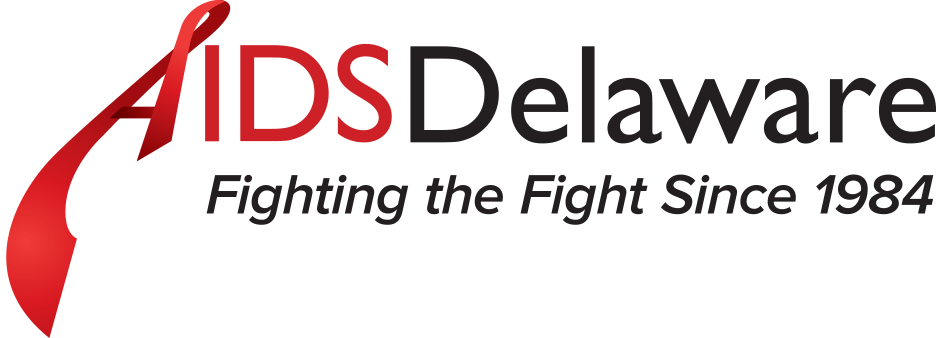
Frequently Asked Questions
Home • Frequently Asked Questions
Here are answers to some common questions. Please call us at 302.652.6776 to speak to someone.
You can also visit the HIV.gov website for more information.
HIV (human immunodeficiency virus) is a virus that attacks the body’s immune system. If HIV is not treated, it can lead to AIDS (acquired immunodeficiency syndrome).
- There is currently no effective cure. Once people get HIV, they have it for life.
- But with proper medical care, HIV can be controlled. People with HIV who get effective HIV treatment can live long, healthy lives and protect their partners.
AIDS (acquired immunodeficiency syndrome) is the most severe stage of HIV (Stage 3).
- People with AIDS have badly damaged immune systems. They get an increasing number of severe illnesses, called opportunistic infections (OIs).
- People receive an AIDS diagnosis when they develop certain OIs, or their CD4 cell count drops below 200 cells per milliliter of blood.
Anyone can get HIV – young and old, men and women, straight, gay, bisexual and transgender, rich and poor, and all racial and ethnic groups – but not everyone faces the same risk. Your risk comes from what you do, and who you do it with – that is, how likely it is that the person you have sex or share needles with is infected. But even if you are part of a community with a high infection rate, you can avoid getting HIV. Staying uninfected takes thinking, planning and follow-through. Often it means talking about things that may make you uncomfortable. It can help to “practice” talking with people you can trust or who are going through the same thing.
HIV can be passed in one of these ways:
- Having unprotected sex (sex without a condom) that involves anal, vaginal or oral penetration with a man or woman who is HIV+.
- Sharing “works” (needles, cookers, cotton and water), and/or a syringe with an HIV+ person.
- Through any blood-to-blood contact with an HIV+ person, generally through open sores or cuts.
- Babies born to HIV+ women can also become infected during pregnancy, birth or breast-feeding; if a woman knows she is HIV+ at the time she becomes pregnant, there are advances in the field which can protect her unborn child.
- By coming in direct contact with an infected person’s semen, blood, vaginal secretions or breast milk.
The only way to know for sure whether you have HIV is to get tested. Knowing your HIV status helps you make healthy decisions to prevent getting or transmitting HIV. Schedule an appointment for a FREE and confidential HIV test, or call Darcy at 302.652.6776
Some people have flu-like symptoms within 2 to 4 weeks after infection (called acute HIV infection). These symptoms may last for a few days or several weeks. Possible symptoms include:
- Fever, Chills, Rash, Night sweats, Muscle aches, Sore throat, Fatigue, Swollen lymph nodes, and Mouth ulcers.
But some people may not feel sick during acute HIV infection. These symptoms don’t mean you have HIV. Other illnesses can cause these same symptoms.
Yes, people over age 50 are very much at risk for HIV. HIV was never a part of their earlier dating life. These days, people are living longer and dating again after the death or divorce of a spouse. Since people do not outgrow their need for a loving relationship and may feel that the protection of a condom is no longer necessary to prevent pregnancy, people over age 50 can engage in risky behaviors. Also, medical professionals are uncomfortable raising sexual topics with this group of people. Some of the earliest signs of HIV — forgetfulness, dizziness, poor balance, loss of appetite — can mirror normal age-related concerns and HIV does not enter the medical professional’s diagnosis. People over age 50 should routinely be tested for HIV and practice safer sex habits if they are in a sexual relationship or are considering a sexual relationship. The growth of HIV in the age group is about 16% per year.
HIV is a fragile virus. You DO NOT get HIV from:
- Working or being around someone who is HIV+ (positive);
- Sneezing or coughing, touching, hugging, kissing, public restrooms, sweat, spit, tears, drinking fountains, phones, pools, saunas or showers, insect bites or stings or by sharing a meal or being friends with an HIV+ person;
- Donating blood.
Today, more tools than ever are available to prevent HIV. You can use strategies such as abstinence (not having sex), never sharing needles, and using condoms the right way every time you have sex. You may also be able to take advantage of HIV prevention medicines such as pre-exposure prophylaxis (PrEP) and post-exposure prophylaxis (PEP). If you have HIV, there are many actions you can take to prevent transmitting HIV to others. Visit the Center for Disease Control and Prevention website for more information.
